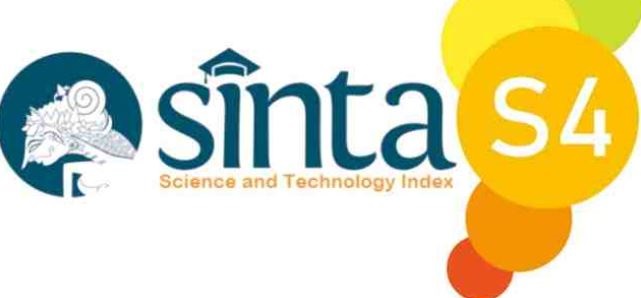Memaknai Pengalaman Tanpa Anak: Studi Fenomenologi Pada Suami-Istri yang Mengalami Infertilitas
 ), Zainal Abidin(2),
), Zainal Abidin(2), (1) Universitas Padjadjaran
(2) Universitas Padjadjaran
 Corresponding Author
Corresponding Author
Copyright (c) 2021 Yeni Oktafriani, Zainal Abidin
DOI : https://doi.org/10.24036/rapun.v12i1.111589
Full Text:
 Language : en
Language : en
Abstract
Keywords
References
Aarts, J. W. M., Van Empel, I. W. H., Boivin, J., Nelen, W. L., Kremer, J. A. M., & Verhaak, C. M. (2011). Relationship between quality of life and distress in infertility: A validation study of the Dutch FertiQoL. Human Reproduction, 26(5), 1112–1118. https://doi.org/10.1093/humrep/der051
Aflakseir, A., & Zarei, M. (2013). Association between coping strategies and infertility stress among a group of women with fertility problem in Shiraz, Iran. Journal of Reproduction and Infertility, 14(4), 202–206.
American Psychological Association. (2020). APA Dictionary. https://dictionary.apa.org/marriage
Arri, H., Agus, S., & Padmi, D. Y. (2019). Individual Adaptation Based on Family Development Stage. 287(Icesre 2018), 185–189. https://doi.org/10.2991/icesre-18.2019.39
Batthyany, A., & Russo-Netzer, P. (2014). Meaning in positive and existential psychology. Meaning in Positive and Existential Psychology, 1–467. https://doi.org/10.1007/978-1-4939-0308-5
Bento, S. P., Goodin, B. R., Fabian, L. A., Page, G. G., Quinn, N. B., & McGuire, L. (2010). Perceived control moderates the influence of active coping on salivary cortisol response to acute pain among women but not men. Psychoneuroendocrinology, 35(6), 944–948. https://doi.org/10.1016/j.psyneuen.2009.12.003
Bokaie, M., Farajkhoda, T., Enjezab, B., Heidari, P., & Zarchi, M. K. (2012). Barriers of child adoption in infertile couples: Iranian’s views. Iranian Journal of Reproductive Medicine, 10(5), 429–434.
Braun, V., & Clarke, V. (2013). Using thematic analysis in psychology,Qualitative Research in Psychology. Journal of Chemical Information and Modeling, 3(2), 77–101. http://dx.doi.org/10.1191/1478088706qp063oa
Cong, J., Li, P., Zheng, L., & Tan, J. (2016). Prevalence and risk factors of infertility at a rural site of northern China. PLoS ONE.
Cousineau, T. M., & Domar, A. D. (2007). Psychological impact of infertility. Best Practice and Research: Clinical Obstetrics and Gynaecology, 21(2), 293–308. https://doi.org/10.1016/j.bpobgyn.2006.12.003
Detricia Tedjawidjaja, M. S. R. (2015). Antara Harapan Dan Takdir: Resolution To Infertility Pada Perempuan Infertil. Jurnal Experientia, 3(1), 109–119.
Estherline, S. H., & Widayanti, C. G. (2016). Makna Infertilitas Bagi Istri Dalam Keluarga Jawa. Empati, 5(2), 276–281.
Fahmi, S., & Pinem, M. (2018). Analisis Nilai Anak dalam Gerakan Keluarga Berencana bagi Keluarga Melayu. Jupiis: Jurnal Pendidikan Ilmu-Ilmu Sosial, 10(1), 112. https://doi.org/10.24114/jupiis.v10i1.9653
Ferland, P., & Caron, S. L. (2013). Exploring the Long-Term Impact of Female Infertility: A Qualitative Analysis of Interviews With Postmenopausal Women Who Remained Childless. The Family Journal, 21(2), 180–188. https://doi.org/10.1177/1066480712466813
Fisher, J. R. W., & Hammarberg, K. (2012). Psychological and social aspects of infertility in men: An overview of the evidence and implications for psychologically informed clinical care and future research. Asian Journal of Andrology, 14(1), 121–129. https://doi.org/10.1038/aja.2011.72
Frankl, V. . (2011). Man’s Search For Meaning with a new foreword by Martin Gilbert. Rider.
Hadley, R., & Hanley, T. (2011). Involuntarily childless men and the desire for fatherhood. Journal of Reproductive and Infant Psychology, 29(1), 56–68. https://doi.org/10.1080/02646838.2010.544294
Hämmerli, K., Znoj, H., & Berger, T. (2010). What are the issues confronting infertile women? A qualitative and quantitative approach. Qualitative Report, 15(4), 766–782.
Hjelmstedt, A., Andersson, L., Skoog-SVANBERG, A., Bergh, T., Boivin, J., & Collins, A. (1999). Gender differences in psychological reactions to infertility among couples seeking IVF- and ICSI-treatment. Acta Obstetricia et Gynecologica Scandinavica, 78(1), 42–49. https://doi.org/10.1034/j.1600-0412.1999.780110.x
Howwit, D. (2016). Introduction to Qualitative Research Methods in Psychology (Third Edit). Pearson.
Jafarzadeh-Kenarsari, F., Ghahiri, A., Habibi, M., & Zargham-Boroujeni, A. (2015). Exploration of infertile couples’ support requirements: A qualitative study. International Journal of Fertility and Sterility, 9(1), 81–92. https://doi.org/10.22074/ijfs.2015.4212
Martins, M. V., Peterson, B. D., Almeida, V., Mesquita-Guimarães, J., & Costa, M. E. (2014). Dyadic dynamics of perceived social support in couples facing infertility. Human Reproduction, 29(1), 83–89. https://doi.org/10.1093/humrep/det403
Patnani, M., Takwin, B., & Mansoer, W. W. (2021). Bahagia tanpa anak ? Arti penting anak bagi involuntary childless. Jurnal Ilmiah Psikologi Terapan, 09(01), 117–129. https://doi.org/10.22219/jipt.v9i1.14260
Peterson, B. D., Newton, C. R., Rosen, K. H., & Skaggs, G. E. (2006). The relationship between coping and depression in men and women referred for in vitro fertilization. Fertility and Sterility, 85(3), 802–804. https://doi.org/10.1016/j.fertnstert.2005.09.020
Pujari, S., & Unisa, S. (2014). Failing Fatherhood: A Study of Childless Men in Rural Andhra Pradesh. Sociological Bulletin, 63(1), 21–40. https://doi.org/10.1177/0038022920140102
Rooney, K., & Domar, A. (2018). The relationship between stress and infertility. Dialogues Clin Nerosci.
Saleh Baqutayan, S. M. (2015). Stress and coping mechanisms: A historical overview. Mediterranean Journal of Social Sciences, 6(2S1), 479–488. https://doi.org/10.5901/mjss.2015.v6n2s1p479
Schmidt, L., Christensen, U., & Holstein, B. E. (2005). The social epidemiology of coping with infertility. Human Reproduction, 20(4), 1044–1052. https://doi.org/10.1093/humrep/deh687
Segal, T. R., & Giudice, L. C. (2019). Before the beginning: environmental exposures and reproductive and obstetrical outcomes. Fertility and Sterility, 112(4), 613–621. https://doi.org/10.1016/j.fertnstert.2019.08.001
Soimah, N., & Hidayat, A. (2011). Psikologi Perempuan Dengan Masalah Infertilitas Sekunder Studi Fenomenologi Pada Pasien Di Poliklinik Kebidanan Rumah Sakit Ibu Anak ’Aisyiyah Muntilan Kabupaten Magelang Tahun 2011 1.
Syam, M., & Idrus, N. I. (2017). ‘Butta Kodi, Biné Kodi’: Stigma dan Dampaknya Terhadap Tu Tamanang di Kabupaten Gowa. Etnosia: Jurnal Etnografi Indonesia, 3, 22–47. https://doi.org/10.31947/etnosia.v2i2.2575
Taebi, M., Kariman, N., Montazeri, A., & Majd, H. A. (2020). Development and psychometric evaluation of the female infertility stigma instrument (ISI-F): Protocol for a mixed method study. Reproductive Health, 17(1), 4–9. https://doi.org/10.1186/s12978-020-0904-5
Tanaka, K., & Johnson, N. E. (2014). Childlessness and Mental Well-Being in a Global Context. Journal of Family Issues, 37(8), 1027–1045. https://doi.org/10.1177/0192513X14526393
WHO. (2020). Infertility. https://www.who.int/news-room/fact-sheets/detail/infertility
World Health Organization. (2015).
 Article Metrics
Article Metrics
 Abstract Views : 1565 times
Abstract Views : 1565 times
 PDF Downloaded : 688 times
PDF Downloaded : 688 times
Refbacks
- There are currently no refbacks.
Copyright (c) 2021 Yeni Oktafriani, Zainal Abidin

This work is licensed under a Creative Commons Attribution-NonCommercial 4.0 International License.






